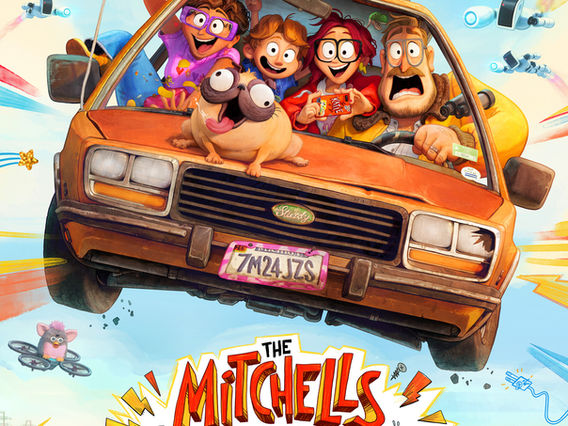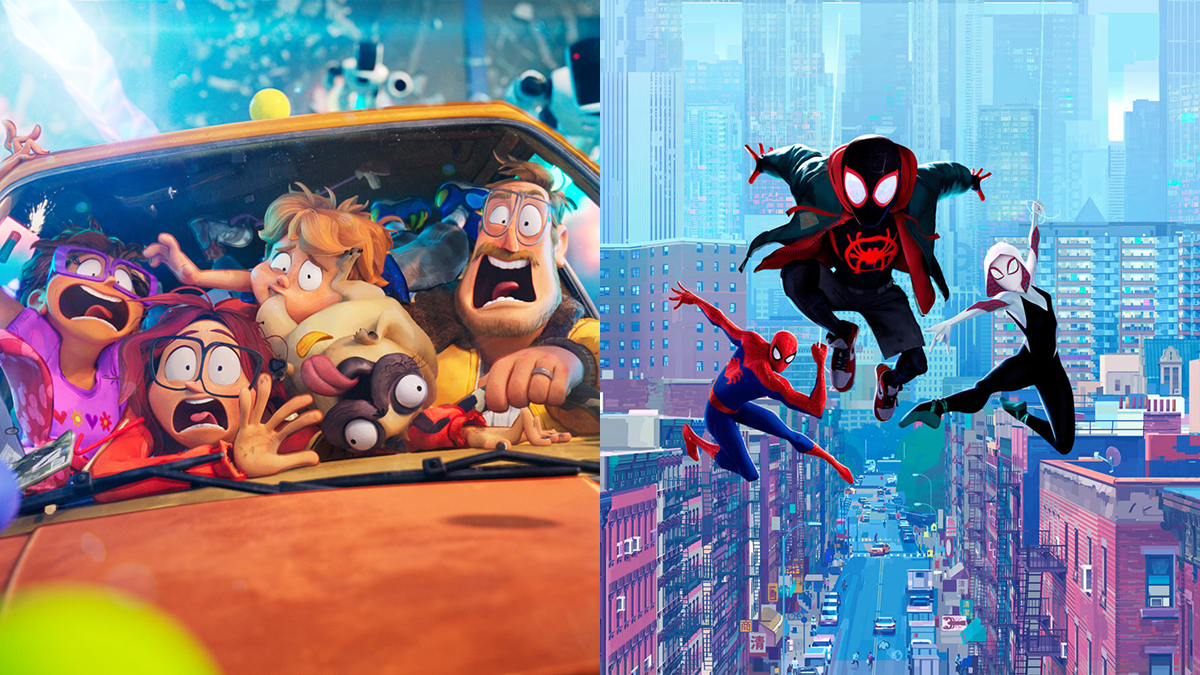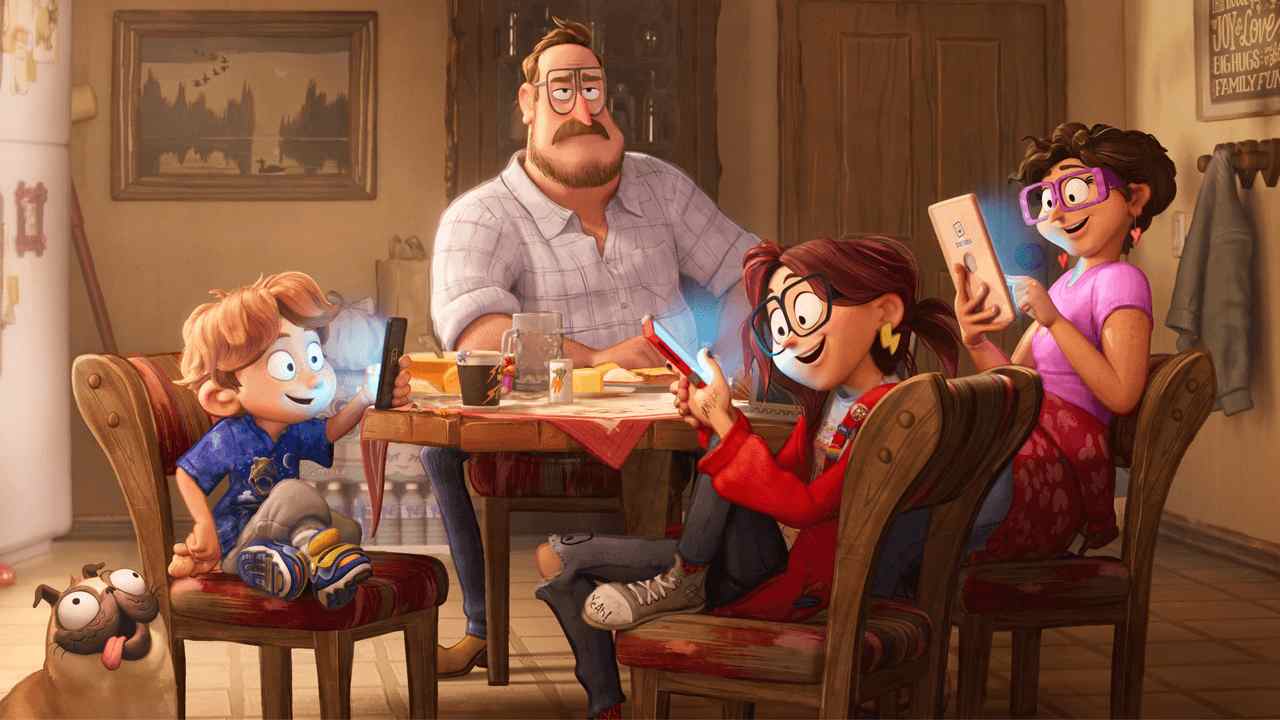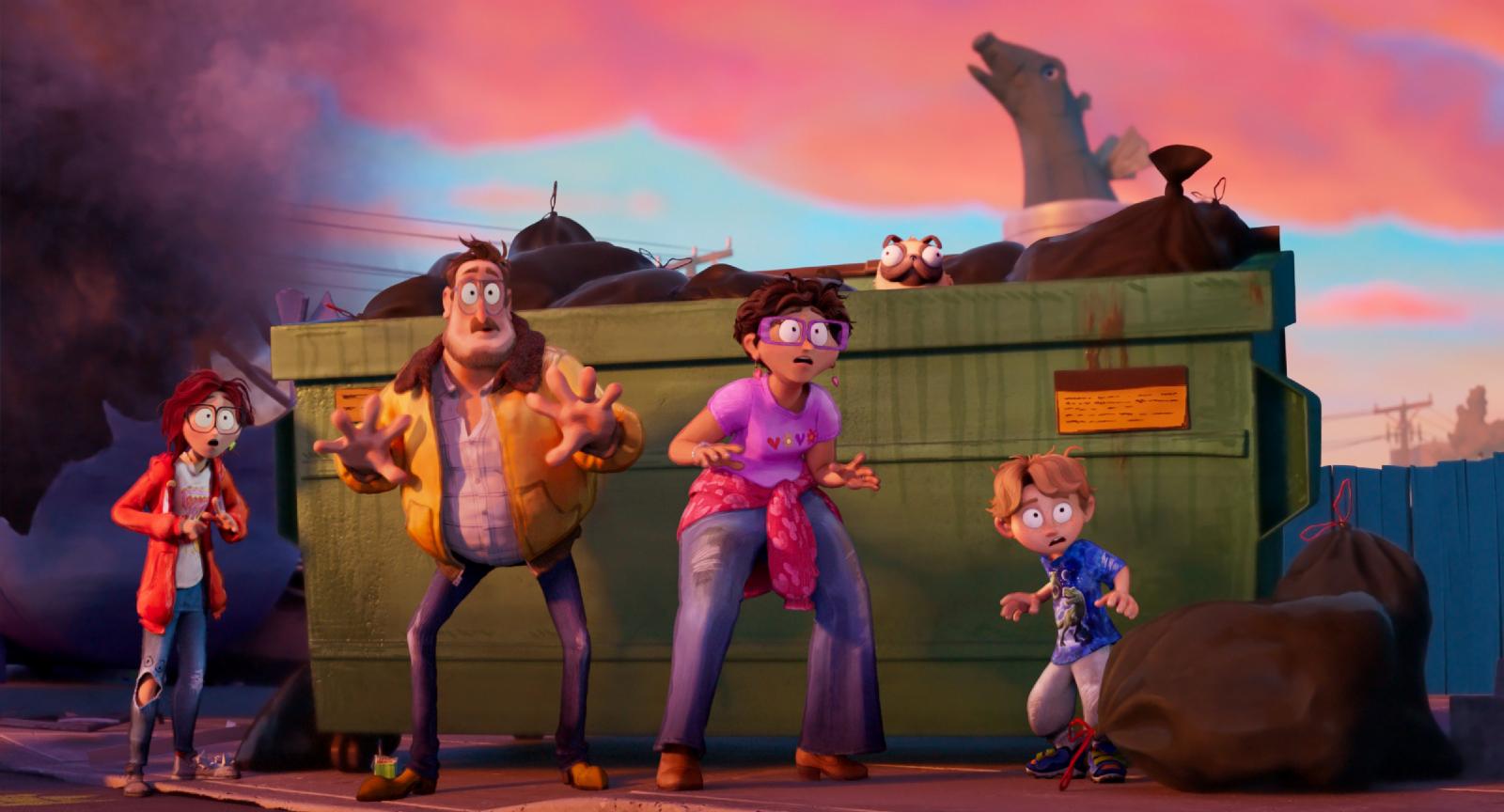The Mitchells vs. the Machines: Family, Growing Up, and the Robot Uprising

If you told someone in 2017 that one year after the release of The Emoji Movie, Sony Pictures Animation would put out the best animated movie of the year, you’d be laughed out of the room. But in perhaps the biggest surprise in the world of Western animation, Sony Pictures Animation has managed to prove itself as a legitimate contender able to produce flicks on the level of quality of something made by Disney or Pixar. Perhaps the greatest example that this increased quality is no fluke is 2021’s The Mitchells vs. the Machines.

The secret behind SPA’s increase in quality is the creative duo of Phil Lord and Christopher Miller, the creatives behind The Lego Movie and Spider-Man: Into The Spider-Verse (among other things, such as the cult hit animated series Clone High). However, they only serve as producers on this film; the director is Mike Rianda, who made his feature film debut with TMVTM. However, Rianda is no stranger to good animated storytelling, having worked on Gravity Falls as a writer and creative consultant. It’s clear that Lord and Miller have an eye for talent in animation. This movie is my partner’s favorite movie, so a lot of the talking points in this review came from him.
Before we get into the details, let’s explore the plot. The Mitchells vs. the Machines focuses on the titular Mitchell family, specifically Katie Mitchell, a teenage girl and aspiring filmmaker about to go off to film school. Her interest runs deep, having made various short films throughout her childhood and teen years and posted them on her YouTube channel. Her family consists of her mom, Linda, her dad, Rick, and her younger brother, Aaron. Rick is a technophobe who focuses a lot on practical skills and making sure that his family is prepared for anything, which turns out to be quite helpful when tech company PAL Labs’ newly unveiled personal assistant robots end up turning against their creators, lead by the vengeance-seeking personal assistant AI named PAL. What was once a trip across the country to get Katie from her home in Michigan to college in California turns into one family’s fight to save humanity from the robot apocalypse.

This movie has style coming out of its ears. Similarly to Spider-Verse, TMVTM uses 3D animation for its characters and environments, but stylized proportions and linework ground the characters in 2D animation of old. And while Spider-Verse drew from the aesthetics of comic books and graffiti art, TMVTM brings in aesthetic flair through the kinds of drawings that Katie might add to her amateur films. It’s a wonderful way to add character to some of the biggest moments in the film and helps the viewer see the story through Katie’s eyes. Additionally, TMVTM is genuinely funny. Internet culture— and especially internet humor— have become one of the most difficult things for traditional media to reference in a way that doesn’t come off as “hello fellow kids”. By weaving it in as part of the fabric of the story, the internet humor feels organic. Something like the giant Furby could’ve easily been grating in a lesser movie, but instead it’s one of the funniest moments in the film.

The family dynamics depicted are both realistic and relatable. The struggles that Katie has in connecting with her father as she’s gotten older are realistic and heartbreakingly real to many viewers. It isn’t a perfect relationship, but it isn’t an irrevocably broken relationship either. There are problems, but it’s clear that Rick and Katie genuinely love each other, as does everyone in the Mitchell family. They’re trying, which is what’s so important. Familial relationships, like all social bonds, take work, which some folks like to obfuscate. TMVTM shows a family putting in that work. Rick comes to realize that Katie’s passion for filmmaking is something special that he needs to support as her father, even if he doesn’t entirely understand it. Katie, meanwhile, learns about the sacrifices that her father has made to give her the life she has, and how for him, being a good father for her and Aaron came before everything else. It doesn’t say “family is the most important thing in the world and you must put family before everything else”, instead focusing on the imperfections that everyone has, and how sometimes it takes a less-than-perfect family to save the world. Additionally, The Mitchells vs. the Machines could’ve easily become a preachy film with a simplistic “technology bad” message, but this is subverted. Instead, technology is shown in its best and worst parts, being both the tool that Katie uses to express herself and something that can be dangerous in the hands of those who are greedy. Capitalism is the real villain here (as it always is).
Speaking of messages, one of the biggest talking points about TMVTM when it first came out was its LGBT representation through main character Katie Mitchell, who is a lesbian. Now, LGBT representation, especially in all-ages media, is a major talking point in the current day and age, but to me, the best balance is crafting a character whose sexuality isn’t their only character trait while also avoiding blink-and-you’ll-miss-it moments of confirmation or subtext which is only confirmed by creators outside of the movie (yes, this is a bit of a pot shot at every single one of Disney’s “first gay characters”). Katie’s sexuality isn’t a major part of the story— there isn’t any storyline about her worrying about coming out to her family, which I personally would’ve found a bit grating (I could talk for hours about how stories about queer suffering are frequently the most popular and visible, but that’s a story for another time)— but it isn’t exactly hidden either. She wears a rainbow flag button, and her crush on her groupmate Jade, who she is dating by the end of the movie, is hinted at throughout the story. It’s representation that doesn’t make a big deal out of itself; Katie’s sexuality wasn’t mentioned in promotional material for the movie at all, which is one of my biggest pet peeves when it comes to modern LGBT representation (when a character’s sexuality is turned into a selling point for a movie). Katie Mitchell just is who she is, and her family loves her for that.

Some miscellaneous talking points I couldn’t fit anywhere else: Eric and Deborahbot5000 are wonderful and their vibes are enviable. Monchi is important representation of dumb dogs everywhere. The fake airplane PSA is hilarious. Aaron’s love for dinosaurs is adorable. The non-original soundtrack is used very well. Best animated movie of 2021. If this movie loses to Luca (2021) (which I love, don’t get me wrong) at the Oscars it will be my Joker moment. Go watch it, you won’t regret it.







